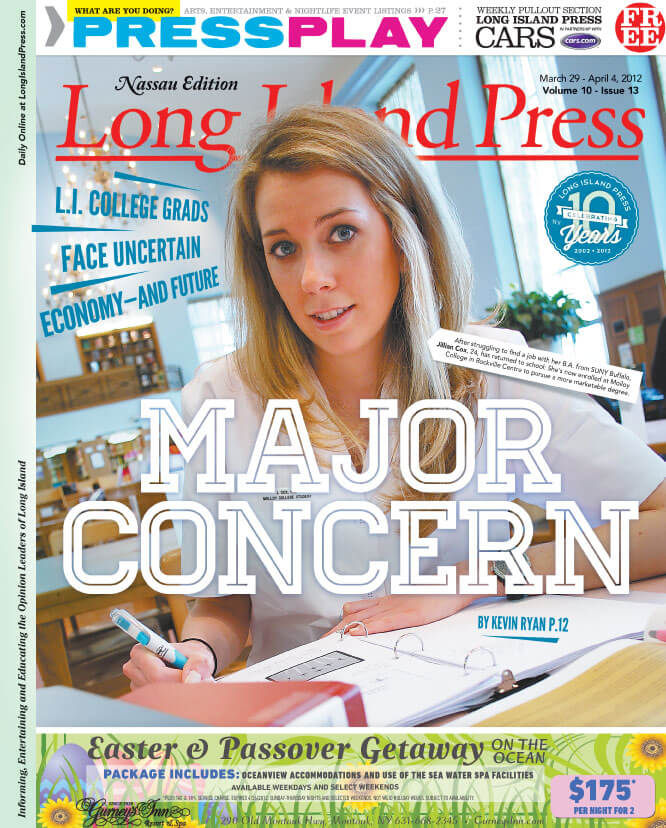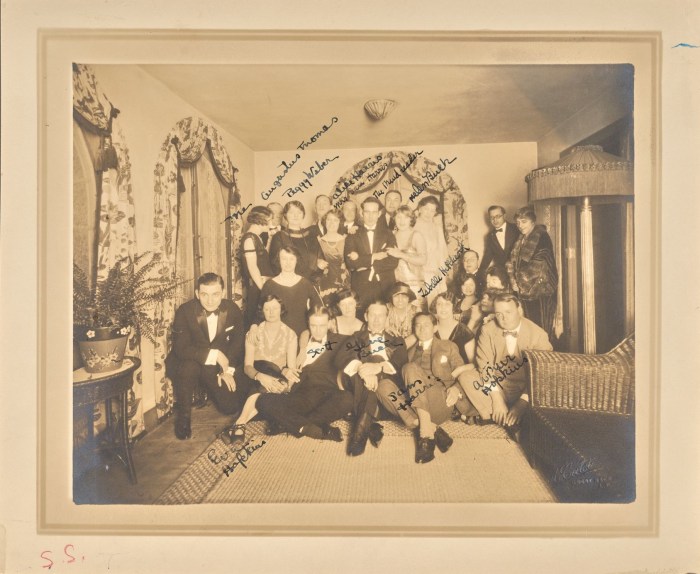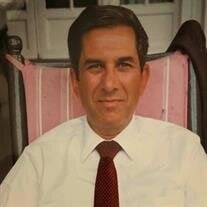
While picking a major is a fluid decision, the choice can still have plenty of long-term impact because all majors are definitely not created equally. The success rates in some disciplines are vastly different from others, as revealed by labor economist Andrew Sum in a recent analysis published in The New York Times. Using data collected in the American Community Survey, Sum determined the percentage of college graduates under age 25 who held jobs requiring college degrees (he found the number to be 55.6 percent) and broke the stat down by major. The most successful discipline, nationally, was education: Among recent graduates who were education majors, 71.1 percent currently hold degree-requiring jobs. The same statistic stands at 69.4 percent for engineering, 68.5 for math/computer science, and 64.9 percent for health majors. On the other end of the spectrum sit an array of liberal arts majors: communication (51 percent), humanities (45.4 percent) and area studies (such as Latin American studies, 44.7 percent) ranked as the bottom three types of majors.
The stats hold water, considering the natures of the disciplines at the extreme ends of the spectrum. Majors like engineering, accounting and education are disciplines that entail very specific training, points out Fred Burke, executive director of the Career Center at Hofstra University. They require particular skill sets that are honed in college classrooms. It follows that students in such disciplines tend to land jobs more easily, Burke says, because their undergraduate studies train them for the exact type of work they will be doing once in the workforce.
Other disciplines, particularly liberal arts and humanities majors, put less of an emphasis on developing skills and more on personal enrichment. Quite often, they are the most appealing to students, but they do little to guide them toward a career. Majors like philosophy, English and history enrich the person as a whole but often fail to place them in jobs. In many of the best cases, they serve as stepping stones to graduate school, a path that gives more of an upper hand to students entering the workforce but also often means more debt.
Burke points out, however, that Hofstra’s career center avoids coercing students to take on particular majors.
“We are objective,” he says. “No advisor is going to encourage a student to study XYZ.” Doing so, he adds, could steer students towards disciplines they hold little interest in. “Students often ask, ‘What should I study?’ and we say, ‘Well, what are you interested in?’ You have to put it back on the student,” he says. “We don’t push people toward majors and careers. We have to keep a level playing field—we have 140 undergraduate programs and 150 graduate programs.”
That being said, Burke notes that the correlation between students’ undergraduate majors and the fields in which they go on to work is low. Today’s economy has put these choices under a microscope, he says, but in reality, much more powerful factors are at play in determining who gets jobs and who doesn’t—such as the initiative they take in the job search.
“I think people are trying to quantify an investment in education,” he says. “What you put in is what you get out. College is designed to prepare you, and if you put forth the effort, you will be successful.”
Such effort comes in the form of internships, campus involvement and taking advantage of alumni connections.
“Get to know your faculty,” he advises. “Engage the process. Use the career center. Especially in this economic climate, why would you not be close to the office that’s going to help you identify jobs and your interests?”
Burke points out that, while there is no surefire trick to success in finding a job, those who are successful tend to take advantage of the connections in their networks and to understand their own skills, values and interests. In the cases of many of the exceptions who were able to find jobs in their chosen fields, success was the result of myriad factors: picking a practical major, forging connections and starting the process early. For Michael Wiederecht, 21, a Massapequa resident and a senior at Notre Dame, this process began with choosing majors that were both engaging and practical.
“I ruled out in my head anything in Arts and Letters,” he says, referring to Notre Dame’s liberal arts school, “both because they weren’t interesting to me, and because I knew it would be much harder to get a job in those fields.”
Wiederecht chose a finance and math double major, and he kept a high GPA in both. He interned at PNC Bank during the summer after his junior year and, by the first semester of his senior year, was offered a job with the company when he graduates this May. He points to his strategic choice of majors as a factor in his ability to succeed where many others have not.
“During one of my interviews,” he recalls, “a recruiter made the comment: ‘He’s math and finance? Let’s give him an offer right now.’”
For others, a key to success has been the decision to enter fields that are growing while many others shrink. To Alex Mavroudis, 22, a senior at Stony Brook, that meant majoring in information systems, which gears students to jobs in information technology. Mavroudis, who also graduates this May, was recently offered a job at the IT consulting company Capgemini. As companies become more and more reliant on technology, he is confident his field will only continue to expand.
“Nowadays with the job market being so difficult,” he says, “it’s nice to go into a field that has more opportunities and is growing every year.”
And success stories do exist in the teaching sector, even though Long Island’s budget issues make it a far less attractive major than in most of the country. Heather Trifiletti, 25, of Ronkonkoma, majored in mathematics and minored in education at Adelphi University. She completed her undergraduate in three years, then spent a fourth year attaining a master’s in secondary education while she interned with the math department at a middle school. The gig didn’t land her a full time job in that district, but when she finished her coursework in 2009, her principal passed her resume on to other schools on the Island. Eventually, she landed a job as a math teacher for 7th and 8th grade students at James Wilson Young Middle School in the Bayport-Blue Point School District, where she is now a full-time tenured teacher. She realizes her good fortune was the result of preparation, hard work and a few auspicious breaks.
“The internship that I did usually lines up everyone for a job the next year. I was the only person out of ten who had a full-time job for the next September,” she says. “I felt so lucky to have gotten a job on Long Island—and I still do.”
Burke points out that, in today’s economy, college graduates like Trifiletti need to put forth the extra effort to become part of the workforce.
“Employers are saying they can’t find good talent. The media is saying there is a shortage of jobs. I think college grads need to be aware they’re entering a competitive job market,” he says, “but they have to think of ways to separate themselves.”
For those graduates now several years removed from college, many of whom have spent years either unemployed or in positions they’re overqualified for, the recession has quelled their youthful hopefulness with an unwelcome dose of reality. But while those who graduated into the teeth of the recession—the classes of 2009 and 2010 especially—have certainly taken a beating, many of them are making the best of what they’ve been given.

Deneen Dismore, 24, of Freeport, graduated in 2009 with a marketing degree from Boston College, and for nearly two years, she bounced among odd jobs: retail at a jewelry store, receptionist at a hair salon and a six-month stint as a full-time babysitter.
“I even have a real estate license I don’t use,” she says. All the while, however, she stayed focused on her goals. “I always made sure I was networking, had my nose in the market,” she adds. “I even carried my resume around with me. I was kind of a psychopath.”
Last August, Dismore found a position as the marketing director for a dentist’s office. While patients have their teeth drilled a few rooms away, she helps the practice expand its clientele—something a bit closer to her desired career path, even though it’s not quite the situation she would have conjured up for herself a few years ago.
“I always saw myself in more of a trendy than corporate environment,” she says, “but I’m happy where I am.”
The importance of the experience hasn’t been lost on her.
“The economy whooped me, spit me out, but you know what? I think it gave me a reality check. I am not entitled to anything.”
And as for the overwhelming majority of those who are about to graduate and don’t already have jobs in hand—are they giving up on their dreams altogether? Hardly. A study by the Pew Research Center found that, while only about a third of young people feel they make enough money, 89 percent of those who don’t think they earn enough foresee that they will in the future. As the situation remains dire, optimism remains unchanged.
Michelle Esbin, 21, a Massapequa resident and a senior at Ithaca College, graduated this December, a semester early. The television-radio major hopes to embark on a career in the entertainment industry, either in Los Angeles, where she spent a semester interning with Will Ferrell’s Funny or Die website, or in New York, where she interned with Nickelodeon last summer and recently signed a three-month contract to work for the company.
“I definitely won’t be starting anywhere near the top, but I’m OK with that,” she says. “Any job is better than no job.”
Funding her undergrad experience has accrued mountains of debt, and she acknowledges that she’ll be paying it off for years to come. But she’s hopeful that it will be worth it.
“To think that all of it is for nothing—that would be terrible. I believe all that time and effort will find me something,” she says.
“In the end, I’m optimistic. I have to be.”



































